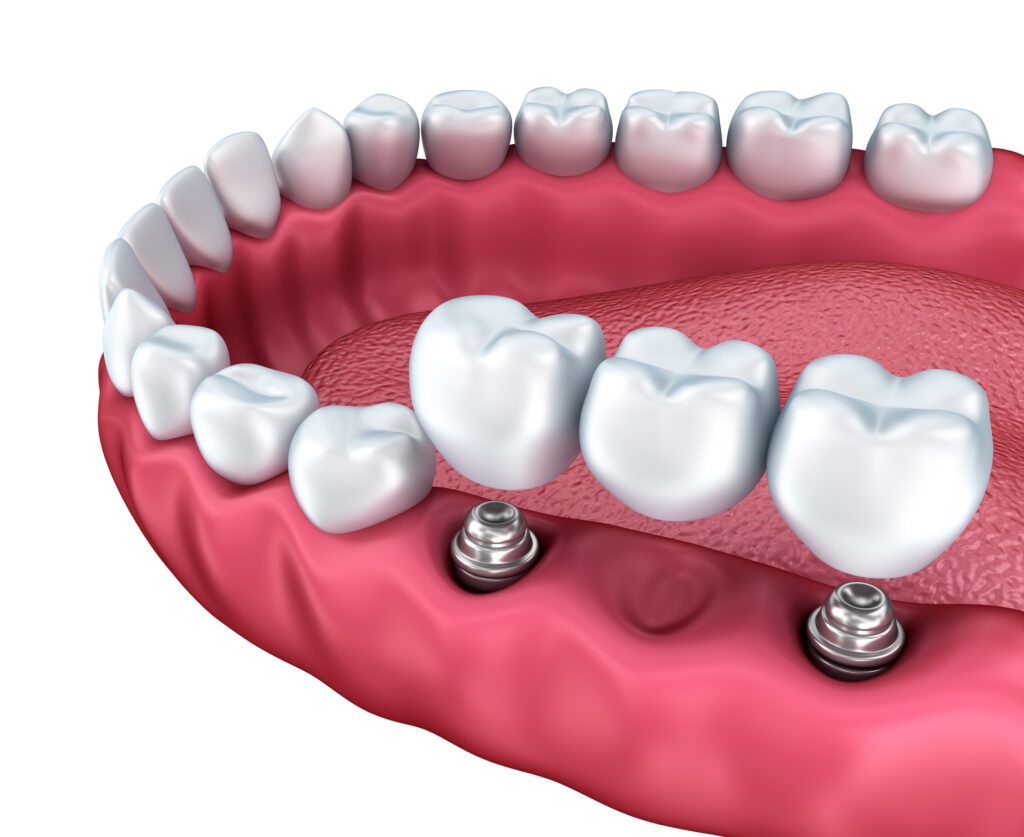Replacing multiple missing teeth is vital for several reasons. Doing so will preserve your oral health by restoring proper oral function, maintaining jawbone health, and keeping your teeth in alignment. It will also help improve the aesthetics of your smile. If you have several missing teeth, dental implants can give you a beautiful smile that will allow you to maintain proper oral health for a lifetime. Premiere Dental Care offers multiple dental implants in Palmdale, CA for patients missing several consecutive teeth.

Why Should I Choose Multiple Dental Implants To Replace My Teeth?
Choosing multiple dental implants to replace your missing teeth will require a more involved process. However, the long-term benefits far outweigh those of your other options, a partial denture or a traditional dental bridge. Choosing multiple dental implants over them offers several advantages:
- Greater stability and strength
- Better preservation of the jawbone
- More natural-looking and aesthetic results
- Better and more stable chewing function
- Secure biting surface
- No speech difficulties
- Offer better comfort and confidence
- Does not rely on neighboring teeth for support
- Long-term solution
- Promotes better oral health
What is an Implant-Supported Bridge?
An implant-supported dental bridge is a dental prosthesis that replaces multiple consecutive teeth. This type of dental restoration uses dental implants to anchor the dental bridge in place.
Dental implants are titanium fixtures that your dentist will surgically place in the jawbone. Here, they serve as artificial tooth roots and the base for the dental bridge. They provide a fixed and functional solution for multiple missing teeth.
The dental bridge is fixed to the implants and will span the gap between the implants. It consists of artificial teeth (pontics) that are attached to crowns on either side, anchoring the bridge in place.
An implant-supported bridge will require at least two dental implants to support the dental bridge. Your dentist will insert one implant fixture in your jawbone on each end of the gap. However, you may need more depending on your case and the number of teeth you are missing.
Implant-Supported Bridge vs Traditional Dental Bridge
An implant-supported bridge relies on dental implants as stable anchors instead of adjacent natural teeth. This provides enhanced stability and durability. It also preserves the surrounding tooth structure.
In contrast, a traditional dental bridge is anchored to natural teeth on either side of the gap. This involves reshaping these teeth for the crown portion of the bridge. It also does not offer the same level of stability and long-term bone preservation as an implant-supported bridge.
Implant-Supported Bridge vs Partial Denture
An implant-supported bridge is a fixed restoration anchored to dental implants. This offers better stability and prevents bone loss in the jaw. Implant-supported bridges often provide a more natural feel and function compared to removable partial dentures.
A traditional partial denture is a removable appliance that clasps onto existing teeth. This makes it less stable and puts extra stress on those anchor teeth. However, it is the more affordable option for replacing missing teeth.
Discover more about dental implant treatment on our website:
Schedule a Consultation for Multiple Dental Implants in Palmdale, CA
Find out why multiple dental implants are the preferred solution for missing teeth by dentists and patients. Contact Premiere Dental Care today or request an appointment online for multiple dental implants in Palmdale, CA today.
